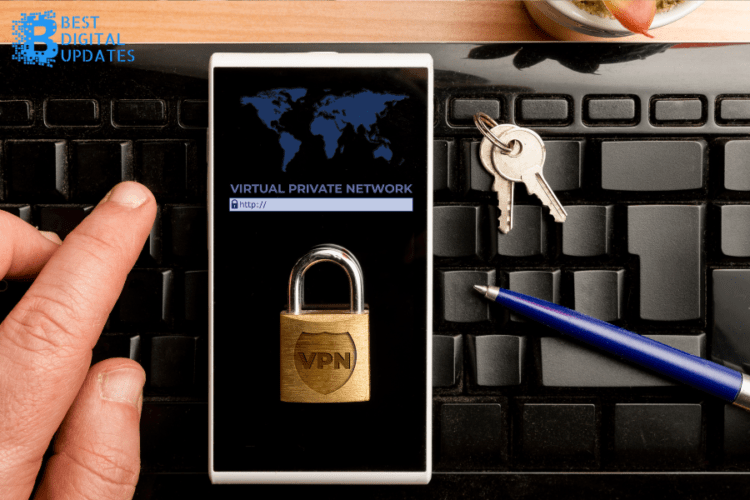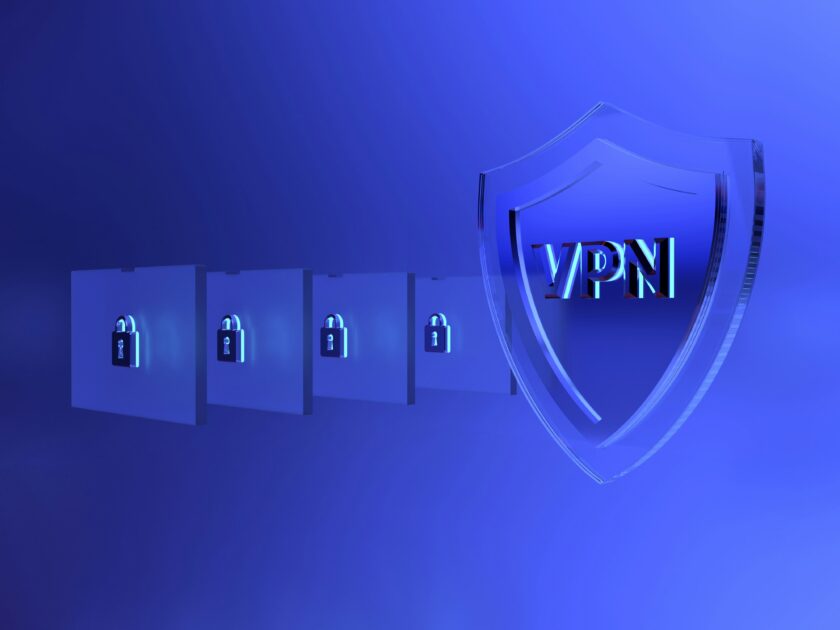In a world where our every move is tracked online, it’s more important than ever to take steps to protect your privacy. That’s where a VPN comes in. A VPN, or virtual private network, encrypts your internet traffic and routes it through a server in another location, making it difficult for anyone to track your online activity. In this article, we’ll explain why a VPN is essential for your privacy and recommend the best ones for different needs.
What is a VPN?
Table of Contents
A VPN, or Virtual Private Network, is a tool that helps to protect your privacy online. A VPN encrypts your internet connection so your online activity cannot be tracked or monitored by your ISP or any other third party. This means your internet browsing is private and secure, even if you use a public Wi-Fi network.
There are many reasons why you might want to use a VPN. Maybe you are concerned about online security and privacy or want to access blocked websites and content. Either way, a VPN can help to keep your online activity private and secure.
A VPN is worth considering if you are interested in protecting your privacy online. There are many different providers out there, so make sure to do your research to find the best one for you.
How a VPN Can Protect Your Privacy Online
A VPN, or Virtual Private Network, is a tool that can help to protect your privacy online. A VPN can encrypt your internet traffic, making it difficult for third parties to snoop on your activities. Additionally, a VPN can mask your IP address, making it harder for Advertisers and other online entities to track you across the web.
You might want to use a VPN for many reasons, but one of the most important is to help keep your data private. With a VPN, you can browse the web without having to worry about third parties being able to see what you’re doing. Whether you’re concerned about companies collecting data about your online activities or government surveillance, a VPN can help keep your information safe.
If you’re looking for a way to improve your privacy online, using a VPN is a great place to start.
The Different Types of VPNs
There are different types of VPNs available on the market. Some of the most popular include:
- Site-to-site VPN: It allow you to connect your device to another site, such as a corporate network.
- Remote access VPNs: These allow you to connect to a remote server, such as a gaming server, from anywhere in the world.
- Virtual private networks: These provide you with a private network that is encrypted and secure. Many businesses use this VPN to protect their data and confidential information.
- Public Wi-Fi VPNs: These allow you to connect to public Wi-Fi hotspots without risking your data.
- Mobile VPNs: These are designed for mobile devices like smartphones and tablets. They offer a higher level of security than public Wi-Fi hotspots and can be used to access corporate networks and confidential data.
The Best VPNs for Privacy
If you’re concerned about your online privacy, using a VPN is a great way to protect your information. A VPN encrypts your data and routes it through a secure server, making it difficult for anyone to intercept or access your information.
There are many VPN providers, and knowing which one to choose can be challenging. We’ve compiled a list of the best VPNs for privacy based on features, security, and price factors.
NordVPN is an excellent option for those looking for a comprehensive VPN service. It offers a variety of features that make it ideal for privacy protection, including military-grade encryption and a strict no-logs policy. NordVPN is also one of the most affordable VPN providers, starting at just $2.75 per month.
ExpressVPN is another excellent choice for a privacy-focused VPN. It offers robust security features, including 256-bit AES encryption and a kill switch. ExpressVPN also has a strict no-logs policy, ensuring that your data remains private. Prices start at $8.32 per month.
IPVanish is another strong contender in the VPN space. It offers military-grade encryption and a wide range of features that make it perfect for protection.
VPN for Macbook
There are a lot of reasons to get a VPN for your Macbook. One of the primary reasons is privacy online. A VPN will encrypt your traffic and keep your activity private from your ISP and other third parties.
Another reason to use a VPN is to bypass geo-restrictions. If you want to access content only available in another country, you can use a VPN to change your IP address, and it appears as if you are located in that country. This can be useful for accessing streaming content, websites, and apps unavailable in your country.
Finally, a free VPN Macbook can improve your security using public Wi-Fi networks. When you connect to a public Wi-Fi network, your traffic is not encrypted and can be intercepted by anyone on the same network. Using a VPN can encrypt your traffic and stay safe on public Wi-Fi networks.
How to Choose a VPN
In an increasingly connected world, it’s more important than ever to take steps to protect your privacy. A VPN encrypts your internet traffic and routes it through a server in another location, making it difficult for anyone to track your activity or see your online activity.
There are a lot of different VPNs to choose from, so how do you know which one is right for you? Here are a few things to keep in mind when choosing a VPN:
- What’s your budget? Free and paid VPNs are available, so you’ll need to decide which type is right for you. If cost is a significant factor, then a VPN download free Windows may be the way. However, remember that free VPNs often have fewer features and may not be as reliable as paid options.
- What are your needs? Are you looking for a simple way to encrypt your internet traffic, or do you need more advanced features like an ad blocker or kill switch? Make sure the VPN you choose offers the features you need.
- Where are you located? Some VPNs offer servers in multiple countries, so you’ll need to ensure the one you choose has servers in the locations you need.
- What’s your level of technical expertise? Some VPNs are easier to use than others, so if you’re not tech-savvy, you’ll want to choose a VPN that’s easy to set up and use.
Using a VPN
A VPN can be an excellent tool for ensuring your privacy online. By routing your traffic through a VPN server, your traffic is encrypted and cannot be read by your ISP or anyone else. Your ISP cannot sell your data to advertisers, and your browsing history is safe from prying eyes.
Additionally, a VPN can help to bypass internet censorship. If you live in a country with strict internet censorship laws or traveling to such a country, using a VPN can help you access the internet freely.
Finally, a VPN can improve your security when using public Wi-Fi networks. When you connect to a public Wi-Fi network, all your traffic is typically unencrypted, which means that it can be intercepted by someone else on the network. However, if you connect to the same network through a VPN, your traffic will be encrypted and much more difficult to intercept.
Conclusion
A VPN is a crucial tool to protect your online privacy and VPN can help keep your information safe from hackers, government surveillance, and other threats by encrypting your traffic and hiding your IP address. A VPN can also help you access blocked websites and content. If you are concerned about your online privacy, we recommend using a VPN.





















